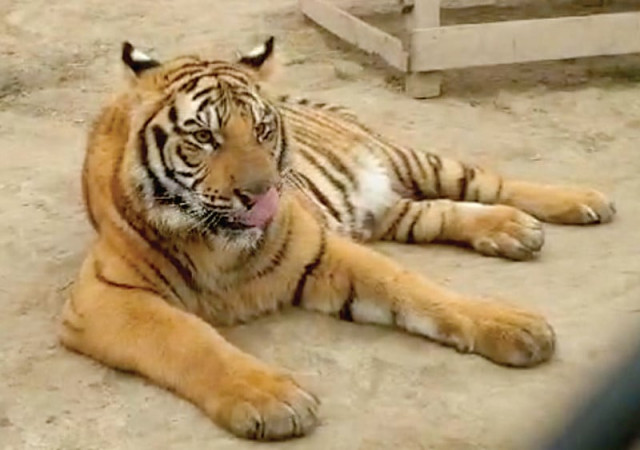Wildlife crackdown in Punjab sparks controversy
Animal lovers say crackdown on illegal pet ownership is unfairly targeting them, despite authorities’ enforcement

The Punjab Wildlife Department has intensified its crackdown against the illegal trade of wild animals and the private keeping of exotic birds and animals for recreational purposes. While this is seen as a positive step towards protecting endangered species, many hobbyist bird keepers are growing increasingly anxious.
In recent operations, wildlife rangers have recovered 25 lions and tigers, along with several rare birds and animals, from various districts including Lahore. Concerned citizens argue that the department's strict actions are also targeting those who have been keeping birds as a hobby for years.
For instance, Rao Abdur Rehman, a resident of Model Town, shared that he has been keeping partridges for the past 15 years. Even though he has a license, it has not been renewed in recent years. "I care more for these birds than my own children. But now even they are at risk,” said Rehman.
Similarly, Shehzad Hussain, another citizen, questioned why keeping birds at home was prohibited when the department itself issued hunting licenses. According to Hussain, licenses for black partridges haven't been renewed since 2007. "Go tough on commercial breeders, but at least allow hobbyists to keep a few birds,” implored Hussain.
Conversely, wildlife law expert, Altamash Saeed opined that protected animals should not be allowed in private ownership under any circumstances. “The policy on hunting migratory birds should be reviewed, particularly in the context of climate change. The department even issues hunting licenses during the breeding season, which is unacceptable,” claimed Saeed.
The Wildlife Department has admitted that it lacks accurate records of privately kept wild animals and birds due to the previously manual licensing process. However, they are now shifting to a digital system to ensure transparency and maintain reliable data.
According to Punjab's Assistant Chief Wildlife Ranger, Asim Bilal, certain animals listed under Schedule-II of the Wildlife Act, such as lions, tigers, leopards, jaguars, and different deer species, are not allowed to be kept within residential areas.
“Breeding farms can only be set up outside populated areas, and only with departmental approval. Exotic birds like macaws don’t require a license if kept at home, but those breeding or trading them must obtain a dealer’s license. For birds like peacocks, pheasants, and chakors, a license is mandatory. New restrictions have also been placed on species like the raw parrot, ring-necked parrot, and Alexandrine parrot, which now must be registered and tagged. The registration fee has been set at Rs1000,” said Bilal.
The licensing for birds such as hawks, shikras, and falcons has been discontinued, except for hawks, for which a license will still be issued. Species like monkeys and pythons are now completely protected and cannot be kept in private captivity. Hunting of wild quails is only allowed with permission, but keeping them privately is considered a legal offense.
While efforts to conserve wildlife in Punjab are commendable, the concerns of hobbyist bird keepers and citizens facing legal complexities cannot be ignored. Hence, it is essential to make existing laws and the licensing system more transparent, accessible, and realistic so that wildlife protection can be ensured without unnecessarily harassing law-abiding enthusiasts.





















COMMENTS
Comments are moderated and generally will be posted if they are on-topic and not abusive.
For more information, please see our Comments FAQ